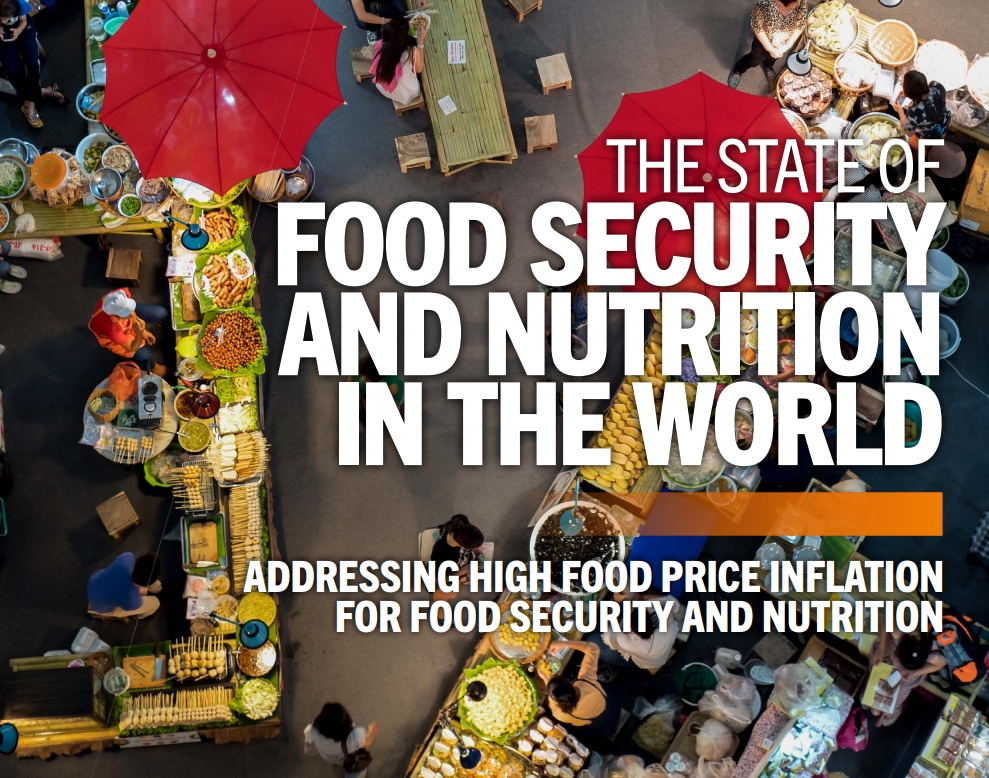 The State of Food Security and Nutrition in the World 2025 (SOFI 2025) report, released on 28 July, shows that Brazil is no longer on the Hunger Map, but that hunger still affects 673 million people worldwide, equivalent to 8.2% of the global population.
The State of Food Security and Nutrition in the World 2025 (SOFI 2025) report, released on 28 July, shows that Brazil is no longer on the Hunger Map, but that hunger still affects 673 million people worldwide, equivalent to 8.2% of the global population.
Launched during the 2nd UN Food Systems Summit (UNFSS+4), held in Addis Ababa, Ethiopia, the SOFI report is prepared by five UN agencies: the Food and Agriculture Organization of the United Nations (FAO), the World Food Programme (WFP), International Fund for Agricultural Development (IFAD), United Nations Children’s Fund (UNICEF) and World Health Organization (WHO).
Brazil
Brazil’s exit from the Hunger Map reflects the three-year average from 2022 to 2024, a period in which the country managed to reduce the proportion of its population suffering from undernourishment to less than 2.5% — the threshold established by the FAO for a country to be removed from the global indicator.
The classification is based on three-year moving averages to avoid distortions caused by specific events, such as economic crises or climate disasters. The year 2022 was considered critical for hunger in Brazil, with high rates of food insecurity. In two years, the country reversed this scenario.
Global overview
The number of hungry people in the world, 673 million (or 8.2% in 2024), despite representing a slight improvement over previous years (8.5% in 2023 and 8.7% in 2022), still remains above pre-pandemic levels.
Latin America and South Asia have made significant progress, while hunger continues to grow in several regions of Africa and West Asia. In 2024, more than 20% of the African population faced hunger, representing about 307 million people.
The executive director of the World Food Programme (WFP), Cindy McCain, warned of the risks of regression in the face of declining international funding for humanitarian actions.
“Hunger remains at alarming levels, but the resources to combat it are dwindling. Last year, the WFP reached 124 million people with vital food assistance. This year, cuts of up to 40% in funding mean that tens of millions will lose this essential support. While the slight reduction in global food insecurity rates is welcome, the continued failure to provide critical aid to those who need it most could undo these hard-won gains and create even more instability in vulnerable regions.”
High cost
The report also highlights the impacts of food inflation, which since 2020 has exceeded overall inflation in several countries, making it difficult to access healthy diets, especially in low-income nations. In 2024, around 2.6 billion people were unable to afford nutritious food — a figure that is still high, although lower than the 2.76 billion recorded in 2019.
In addition, indicators of child nutrition and women’s health remain a concern. The prevalence of anaemia among women aged 15 to 49 increased to 30.7% in 2023, and adult obesity continues to rise.
The full SOFI 2025 report is available in English.




